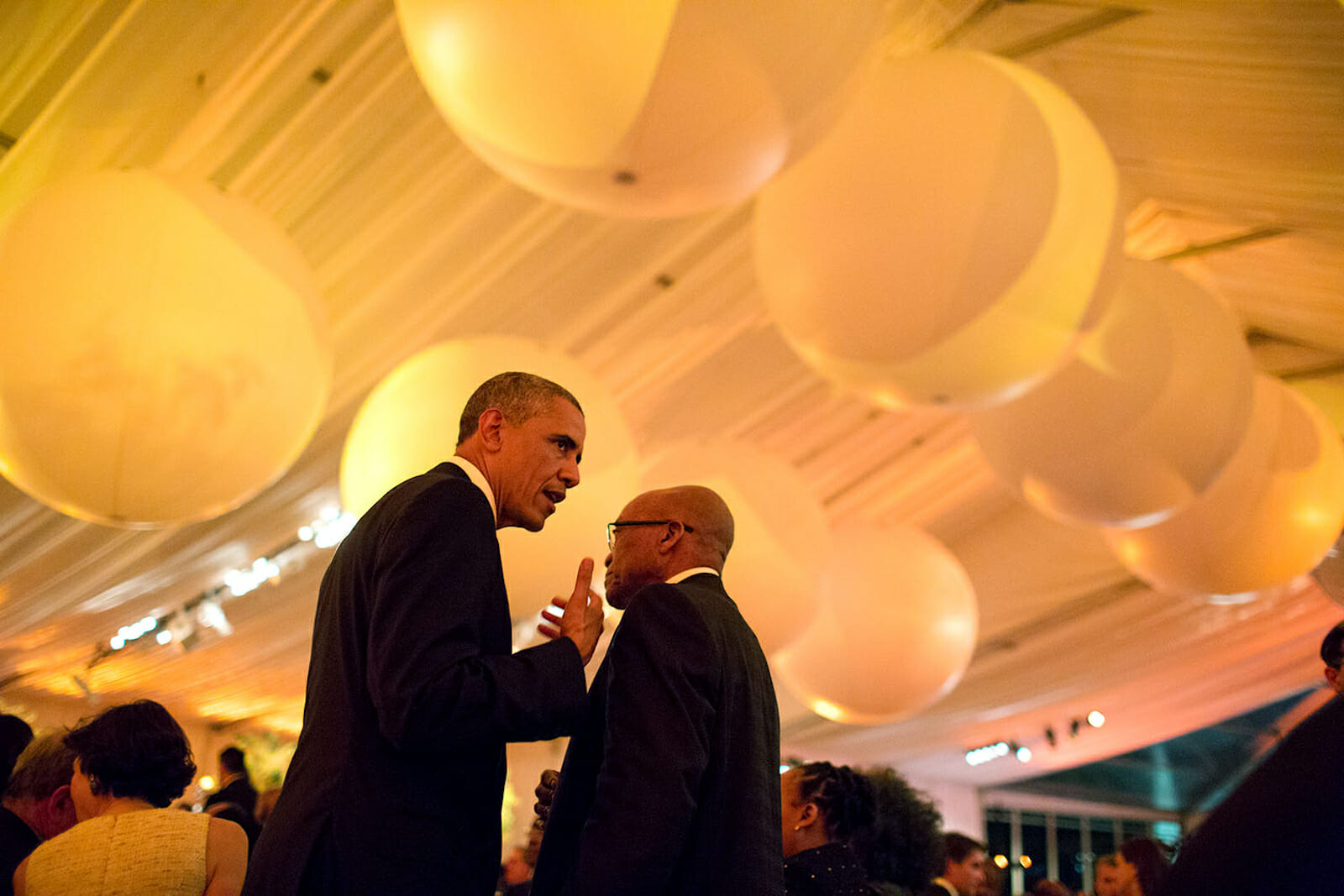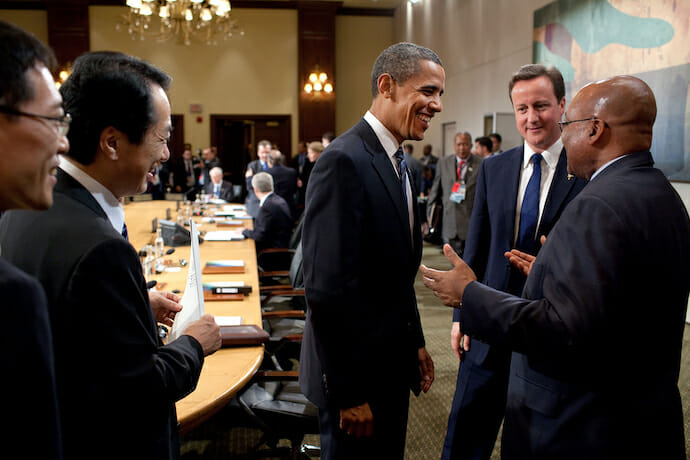
A New ‘Rough Patch’ in U.S.-South Africa Relations
The U.S.-South Africa bilateral relationship over the past eighteen months has been a diplomatic minefield. Issues include everything from military equipment and nuclear energy/weapons to oil, communication companies and the global north versus the global south. The most recent, and the most serious issue regarding U.S.-South Africa relations is Iran. According to a press release sent out this week by the South African Revenue Service, South Africa imported 3.37 billion rand ($435 million) of crude oil from Iran in March. This means Pretoria nearly doubled its purchases from the Islamic Republic compared to the same period last year, despite strong objections by Washington in order to cut off Iran financially and halt its nuclear program.
This is interesting because Sasol, South Africa’s global petrochemical group whose primary business is based on CTL (coal-to-liquid) and GTL (gas-to-liquid) technology, has stopped buying Iranian crude oil and is talking with potential buyers to off-load its Arya Sasol Polymers plant in Iran. Sasol sat in front of the U.S. Securities and Exchange Commission (SEC) in October 2011 and was told of a risk that sanctions may be imposed on them by the U.S., the European Union, and the UN as a result of its investments in Iran.
Moreover, Engen, the biggest South African importer of Iranian crude, said on 04 April that it suspended imports of oil from the Middle Eastern nation amid economic sanctions by the U.S. and the EU.
Obama officially made his diplomatic threat on 31 December 2011 when he signed a law that may impose American penalties should a country not make “significant” reductions in Iranian crude oil purchases in the first half of this year. However, Washington did offer countries assistance in locating alternative oil, which was offered to South Africa.
South African Deputy Foreign Minister and member of the ruling African National Congress (ANC) Ebrahim Ebrahim told reporters in March that his country intended to follow the U.S. request. However, the Department of Energy later corrected his statement, saying that no decision has been taken and that they will not decide whether to reduce Iranian oil imports until the end of May.

COSATU, the South African trade union and an alliance partner of the ruling ANC, spoke out against America for “its attempts to bully countries to cut imports of Iranian oil,” on the basis of “unproven allegations.” The South African government must “stop this kowtowing to the U.S. imperialists,” COSATU spokesman Patrick Craven said. Adding to the oil fiasco is the issues surrounding Africa’s biggest cell phone company, South Africa’s MTN, who operates in Iran and who, unlike Sasol, doesn’t appear keen to pull out of Iran.
MTN is currently involved in a lawsuit on behalf of Turkcell alleging that it conspired to help Iran obtain South African weapons and government support for its nuclear program in exchange for a license to operate in Iran. In a lawsuit filed in a U.S. court under the Alien Tort Statute, court documents reveal MTN would persuade the South African government to vote in favor of Iran’s nuclear program at the UN and to sell it heavy weapons prohibited by international sanctions. The lawsuit alleges that MTN struck a deal to deliver a large shipment of military arms and technology, code-named “The Fish,” to Iran’s defense ministry in 2004. Although the deal never took place, it was supposed to include Rooivalkers, based on the U.S.-made Apache, sniper rifles, G5 howitzers, canons, radar technology and other defense equipment barred by international sanctions.
In September 2008, the U.S. Treasury’s Office of Foreign Assets Control placed one of MTN’s Irancell partners, IEI, on a list designed “to combat the proliferation of weapons of mass destruction,” IEI, wholly owned by Iran’s ministry of defence, was also sanctioned by the European Union in June 2008 as well as under the U.S. Iran and Syria Non-Proliferation Act. Overall, this past year and a half have not been the most pleasant of times for U.S.-South Africa relations. The real tension began in March 2011, over the war in Libya. South Africa and other African Union member-states had hoped the international community efforts would bring an immediate ceasefire and internal national reconciliation when the war began in March 2011. Instead, South Africa began to denounce the NATO bombardment of Gaddafi’s defense installations as an attempt at ‘regime change.’ Washington then put intense diplomatic pressure on Pretoria to drop its opposition to the unfreezing of US$1.5 billion of Gaddafi regime assets by the UN.
Since 1994, South Africa hasn’t been shy in perceiving themselves as one the ‘champions’ of the Global South. As one American official pointed out, South Africa has had close ties with the Non-Aligned Movement countries, and has exhibited “marked sympathy toward countries that exert their independence from the West.” Their recent addition to BRICS has definitely not helped U.S.-South Africa relations. South Africa recently stated that as host of the next BRICS summit [2013], it has a duty to ensure the grouping realize their dream of a Development Bank. Some consider this discussion to be a response and challenge to the Bretton Woods institutions of which the U.S., for the most part, has large control over. Others say this move is set to challenge the supremacy of the U.S. dollar.
I was hopeful at the start of the Obama/Zuma administrations in 2009 that the U.S.-South Africa relationship would improve after a relatively low point towards the end of the Bush and Thabo Mbeki administrations, and it did. There was, and still is, great cooperation in various fields from HIV/AIDS to economics and numerous others. The U.S. is still one of South Africa’s key trading partners in the world today, and the bilateral trade relationship has maintained a consistent pattern of expansion since 1994. Both the U.S. Ambassador in SA and the SA Ambassador in the U.S. are well liked.
However, like a former U.S. Assistant Secretary of State for African Affairs described U.S.-South African relations in 2007, the bilateral relationship has hit another “rough patch.” The combined issues of Libya, Iran, and BRICS are all fuel for a fire that continues to grow. Nevertheless, I am certain the situation will be managed as it has been in the past, but it will be bumpy. Let the rollercoaster ride continue.
